Photo-Realistic Pen Drawings by Juan Francisco Casas
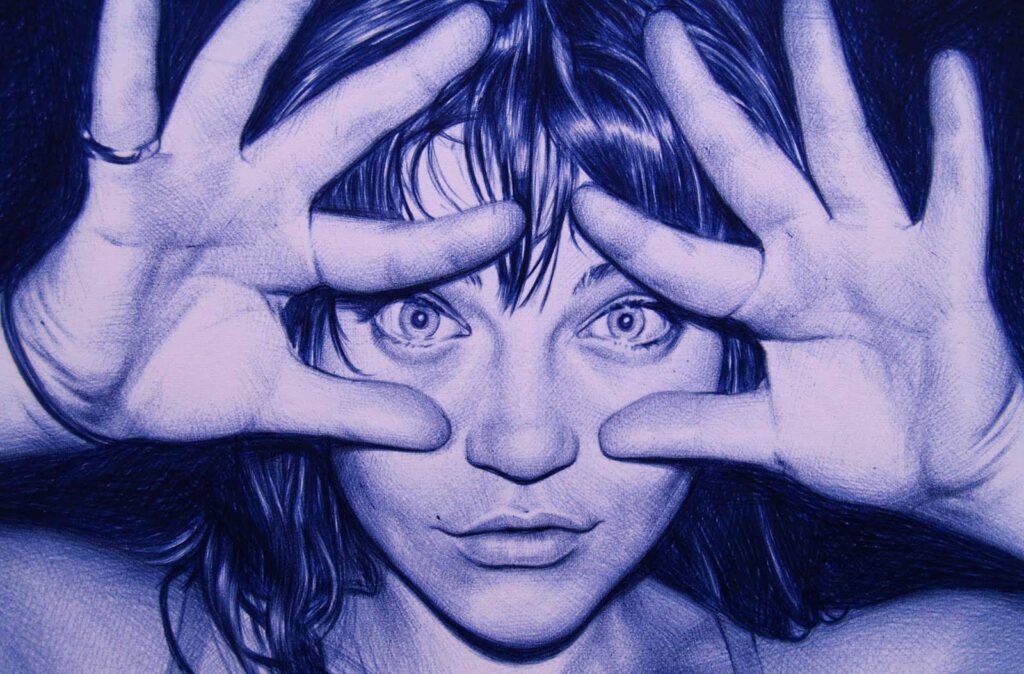
Life is a strange thing. Who would have thought that an artist who started out as a painter would only make it big (in more ways than one) when he started drawing huge lifelike pen drawings based on photographs of his friends – drawings that now appear at sold-out gallery shows around the world.
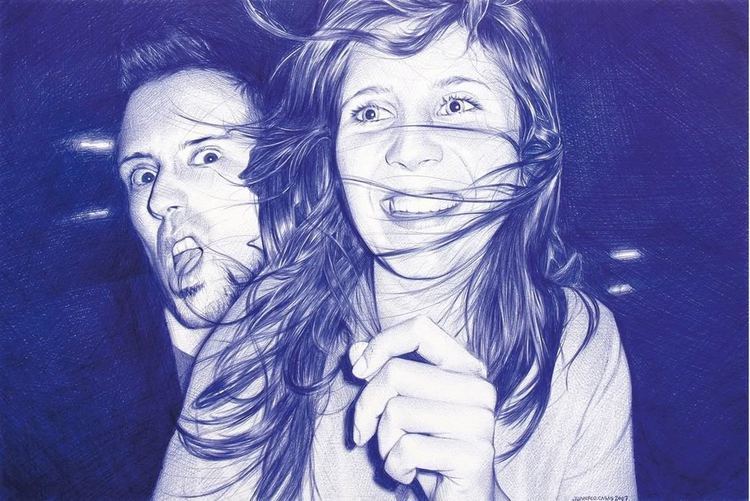
Juan Francisco Casas manages to make one of the most unforgiving (no erasing!) and potentially boring tools (black on white if about all it can do) into a potent artistic device – perhaps even more powerful than the sword, as the saying goes. The results look remarkably three-dimensional, the people in the photo-drawings like solid forms in real space.
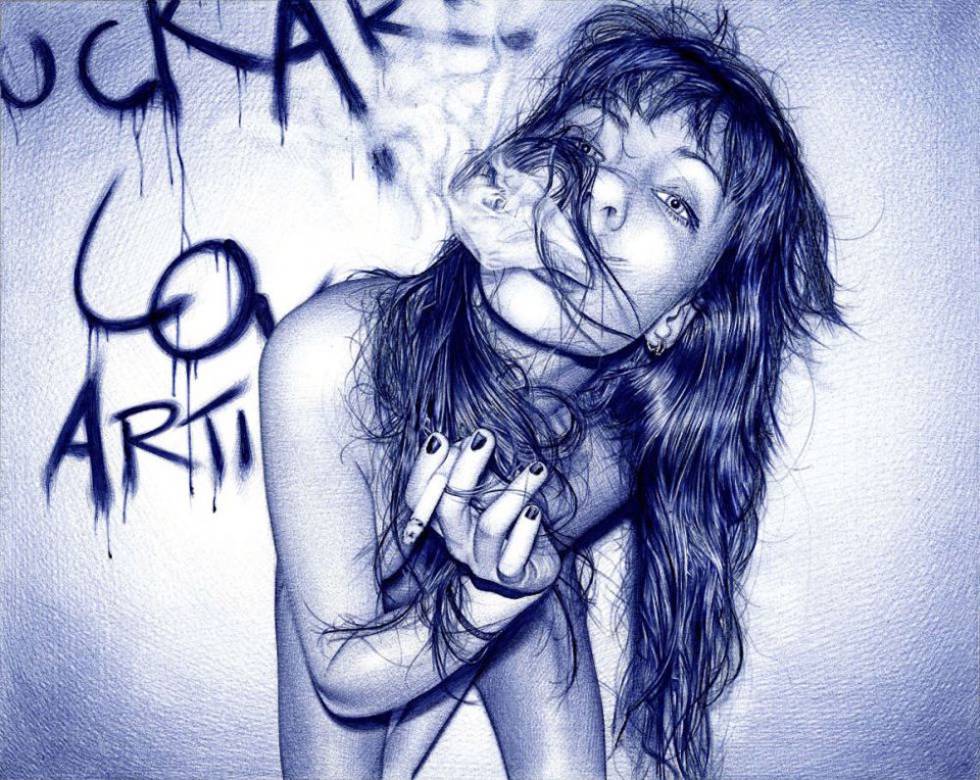
One of the most impressive aspects of these works is their sheer scale – they look like little drawings or standard-sized photos until you see them in context, like in the image above with the artist hovering over his huge half-finished canvas.
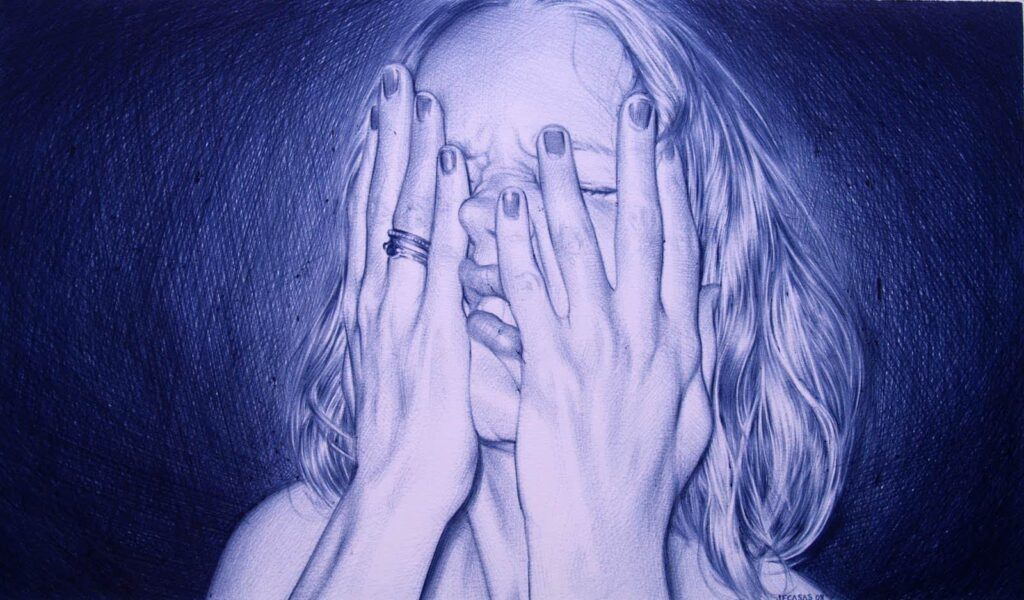
Partly as a joke and in part to make a statement about the potential of simple materials, the artist began doing these works five years ago. He submitted one on a whim to a competition and expected immediate rejection. Instead, his pieces quickly made their way to the mainstream museum scene and have since launched his successful career.
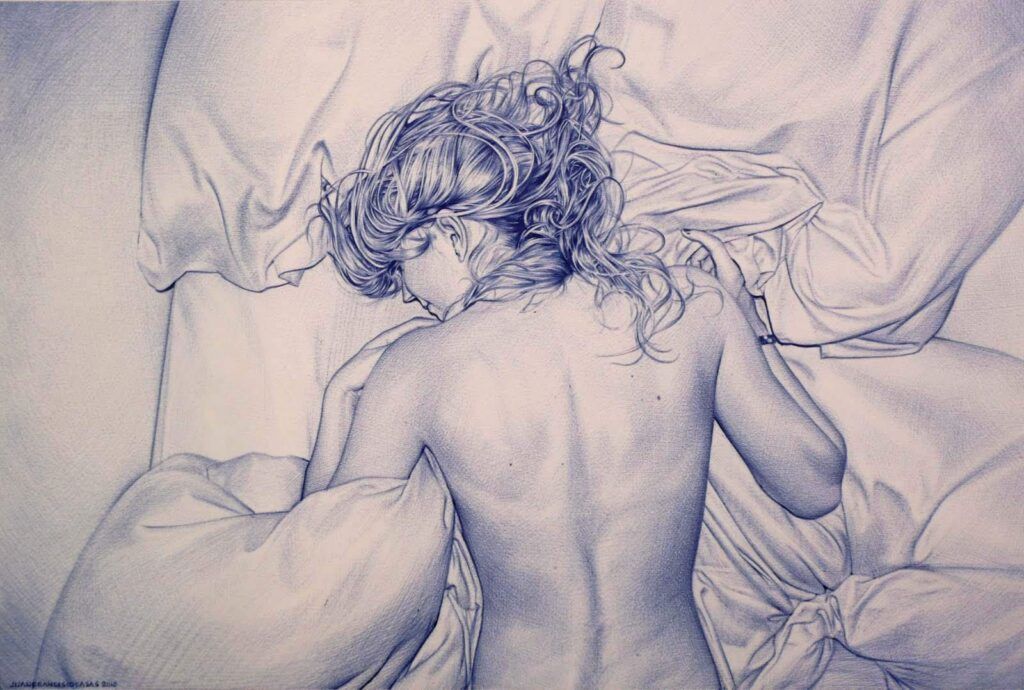
From the artist’s bio on Wikipedia:
“Juan Francisco Casas (born September 21, 1976 in La Carolina, Jaén, Andalusia) is a Spanish artist and poet. Casas recreates photographs he’s taken as large scale oil paintings on canvas, as well as similarly scaled drawings using only blue ballpoint pens. The drawings and paintings are created in photo realistic style most of them as large as 10 feet.”
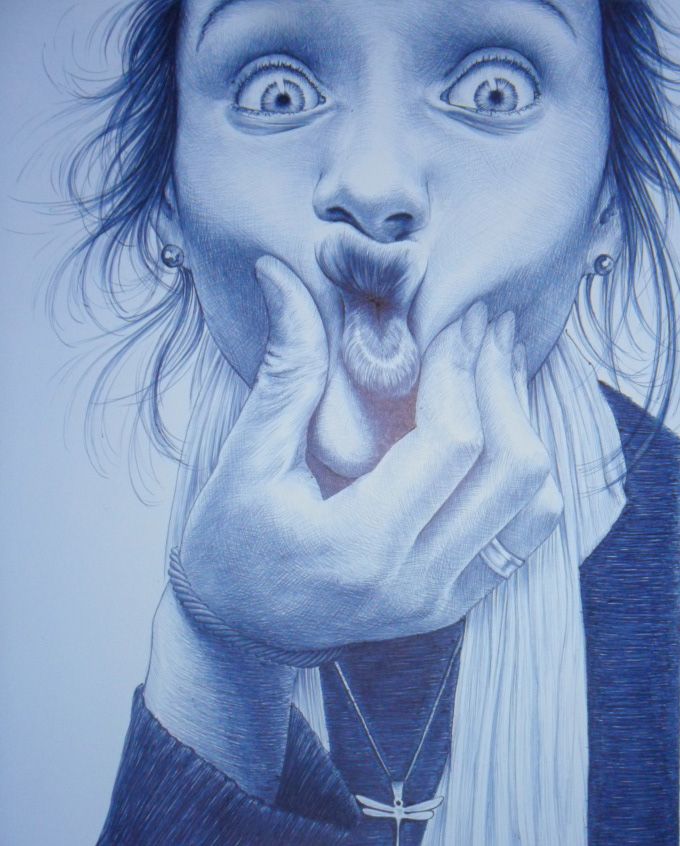
“Juan Francisco Casas Ruiz graduated with a B.A. and a M.F.A. from the University of Granada. He subsequently completed his PhD at the university in 2004, while also holding a teaching position there. During his studies he won the National Award of the Ministry of Education and Science for the best graduate qualifications in Spain,[1] presented by Culture Minister Pilar del Castillo.”




